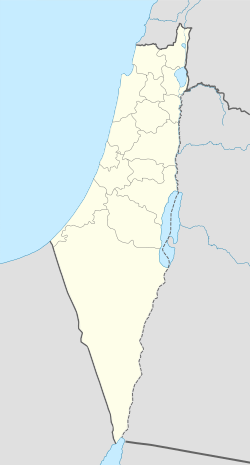History
The village was situated just above Khirbat Asafna. Excavations between 1964 and 1971 showed that the site had been occupied intermittently from the first to the fourth century CE. [3]
In the British Mandate period in Palestine, the village was classified as a hamlet in the Palestine Index Gazetteer. [2] In the 1931 census of Palestine, Al-Jalama was counted under Isfiya. [4]
In the 1930’s the British mandate built the Jalama Tegart fort as a measure against the 1936–1939 Arab Revolt. [5] In 1947 UN resolution 181 (ii) included the area in its allocation for the Jewish state, and the area was incorporated into the State of Israel after the 1948 war. The Kishon prison, also known as the Al Jalame detention centre, [6] was later established in the fort site.
The Palestinian historian Walid Khalidi described the village site in 1992: "A military camp occupies the area, which is covered by eucalyptus trees." [2]
This page is based on this
Wikipedia article Text is available under the
CC BY-SA 4.0 license; additional terms may apply.
Images, videos and audio are available under their respective licenses.






